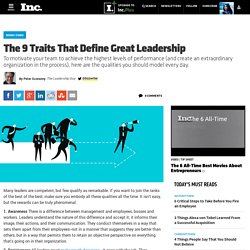

6 Types of Employees Who Frustrate Their Bosses (and How Smart Managers Deal With Them) Being the boss is never easy, but some employees make it particularly difficult.

How do you cope with those who do their jobs well but are equally skilled at annoying both you and their colleagues? Tim Eisenhauer, co-founder of Axero Solutions, which makes the workplace intranet Communifire, has some practical suggestions for coping with challenging employee personalities. Here’s his list of the six most common problem personalities, and how to motivate them to improve their behavior. 1. The Gossip “It’s estimated that around one in every five office workers engages in gossip, and that office workers spend up to three hours each work week hearing, seeing, and speaking gossip,” Eisenhauer says. You can’t eliminate, or even reduce, the amount of gossip in your workplace, he warns, and trying will lead only to ill will. The smarter approach is to use gossip as a tool to encourage all your employees to be better. 2.
At the same time, he says, try to find out the reason for their unhappiness. What is "Leadership" and What Makes a Good Leader? – Search Inside Yourself Leadership Institute. There are many definitions of leadership.

The Collins English dictionary defines leadership as “the leader(s) of a party or group.” Yet true leadership is much more than that. A leader can be the CEO of an organization, or a first year employee who leads his or her team to success behind the scenes. A leader might lead through official authority and power, yet just as often great leaders lead through inspiration, persuasion and personal connections. So what is leadership? “Leadership is the art of leading others to deliberately create a result that wouldn’t have happened otherwise.” It’s not just the creation of results that makes good leadership. 4 Personality Traits That Make You an Effective Leader. What makes a good leader?

Which personality traits do the best trailblazers share? Every organization has its own benchmarks for determining who would make the best head of its teams, but are those qualities really all that different? Research in the field suggests that, on a broad level, employees and employers are looking for similar characteristics in their leaders -- no matter what business they're in. Here are four personality traits that people want in a boss.
Related: 5 Influential CEOs Weigh in What Makes a Good Leader 1. Results form a November 2014 Pew Research Center Survey showed that 84 percent of the 1,835 respondents considered honesty the most essential personality trait for any leader. Honest leaders inspire not just through words but through actions. 2. In the world of personality evaluation, openness is one of the Big Five dimensions of personality that psychologists use to evaluate individuals. Leaderqualities. 23 traits of good leaders. Top 10 Qualities of Great Leadership - Do You Have What it Takes? Whether you have worked your way up the corporate ladder or started your own business, the path to leadership isn’t an easy one.

There will be good times, stressful times, and terrible times, but a great leader is always able to lead a team to success, regardless of the situation at hand. Simply holding a position in leadership doesn’t make someone a good leader. A truly great leader understands the many different factors that come with leading others, and strives to help others reach their goals; they are always developing themselves, and act as visionaries for their organization. Leadership is one of the hottest topics in the business world, with millions of publications on the subject; from books, to blogs, to articles and more.
We gathered some of the leadership qualities that we believe are possessed by many of the world's greatest leaders and formed the list below. Do you have what it takes to be a great leader? Seven Qualities of a Good Leader. The 9 Traits That Define Great Leadership. Many leaders are competent, but few qualify as remarkable.

If you want to join the ranks of the best of the best, make sure you embody all these qualities all the time. It isn't easy, but the rewards can be truly phenomenal. 1. Awareness There is a difference between management and employees, bosses and workers. Leaders understand the nature of this difference and accept it; it informs their image, their actions, and their communication. 2. 3. 4. Forbes Welcome.